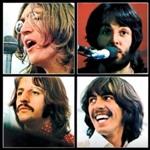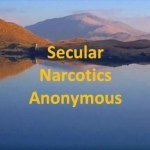Chapter 15:
Do Tell! Stories by Atheists and Agnostics in AA
David B.
Coming to: What happened? Where am I? Who am I? Most alcoholics are familiar with this feeling: an abyss of loss and then a desperate search for the events that led to this point. Sometimes there’s nothing, sometimes there’s a flash – of momentarily seeing, understanding something, but that disappears in a flash, too. And then sometimes – if you’re as determined as I’ve always been – you will chase the flash that might, eventually, lead you to your awakening, a new coming to; a reality where you can finally function without having to compromise your true self.
* * *
In December of 2004, I came to with several emergency technicians around me; there was noise: words, words, words… Maybe words? People yelling, at me, to me: trying to engage me in a conversation – asking me if I could hear them, if I knew where I was. My wife, there too, pleading with me to come out of it, come to.
Come to what? I felt confused.
What date, where was I, did I know what happened? The questions kept on, or maybe they were asked once and my brain was only getting to them now, after playing them on the loop. Words.
So I said some words back, answered some questions. I tried.
My body wasn’t cooperating either – it was sore; it was a body beat up from contracting, seizing, twitching. My tongue screamed with pain: I bit it, repeatedly, just moments ago.
A grand mal seizure.
Finally, there was clarity in the chaos – words coming together, aligning with their meaning. My wife’s eyes looking at me with relief. Vicki. I was coming to. Back to reality. Vicki could see that I would live.

A doctoral dissertation – “Experiences of Atheists and Agnostics in AA” – is based on the book Do Tell. For more information click on the above image.
And in four months, thanks to the seizure, I would question this life that I was coming to.
I lost my driver’s license. There were medical tests: Why did I have the seizure? I told the doctors about painkillers and drinking too much but that wasn’t it – although after my confession, I was prescribed Topamax, which creates monster hangovers. My anxiety was monstrous too. There were more medical tests. The doctors said I was possibly epileptic. They wanted to know where the seizure came from. It wasn’t the first one and as months went on, there was pressure to learn my medical history.
What complicated things was the fact that I was adopted. I had to find out more: it seemed my life depended on it.
And here’s what I found: Miss Bender, 56 years old, died in 1996 of alcoholism. My biological mother. My DNA, my medical history. (Me: “Baby Boy Bender” on the birth certificate – that last name, a grand irony or what?)
I couldn’t deal with it, with my genetics – like me drowning in Jack Daniels, that was yet another truth I didn’t want a part of. So I did what every addict does when confronted with reality: I put that information in a box – figuratively, literally – and the progression of my alcoholism went off the charts.
* * *
Nine-plus months later, picture this: a grown man bawling his eyes out in front of a room full of strangers.
My name is, I say – but everything – like these people, this room – remains unfamiliar for a moment. Even my name and who I am. And whatever happened in the past 24 hours is a blur of one tormented, interrupted sleep; flashbacks of my son and my wife bringing me clothes, other things… a fog of events, feelings of humiliation, too, as my body detoxed.
Then I was off to the treatment center; there was a five minutes-long assessment; more confusion – Who am I? Why am I here? – and I was thrown into this room. An AA meeting.
And now, in this room, bawling; all eyes on me – compassionate eyes, encouraging eyes of people who understand why I’m bawling -I finally choke it out: My name is David and I’m an alcoholic.
Instantly, I feel an immense relief: I know who I am. Only for a flash at this point, but it’s the first time I recognize something concrete about myself.
There’s shame too – for now, only the leftover shame any alcoholic feels; the shame that haunts and often makes sobriety seem like the worst idea ever because you’ll have to face it, the shame. But in this moment, saying the words, admitting who I am, the relief is bigger than the shame; the desire to stop drinking is genuine. It trumps the shame. The shame will come back – it will haunt me for years – but right now even the shame is only a shadow; it waits for me to finish coming to in this room full of strangers. They are bearing witness to a man dying and becoming a new man right before their eyes – the eyes who already know everything without knowing anything specific about me. What they know – everything – is that I am coming back to reality.
* * *
Every day, I am a new man. This has been a theme in my life. As a sober alcoholic, being a new man every day helps me keep in touch with the world around me: I must always be aware of my perception and how close it is to reality. The closer the better.
I am close today.
Wait. Let me check: yes, I am still here. Still sober.
Today, my perception is aligned with my reality.
* * *
You see, addicts have a problem with perception – this is not because we’re stupid; we’re just used to life that is based on manipulation, double-think, secrets – any thing to confirm our delusions. We’re used to not wanting to see things for how they are – we especially avoid the truth of our addiction. And even when we see it, our addiction, we are helpless against it: just because you know something is very wrong, it doesn’t mean you know how to treat it.
When we drink or use, we try to mold the world around us to suit the addiction – for example, I’ve spent years in my basement office, drinking and watching television. One show, Intervention, sticks in mind – the ridiculousness of it: me, an addict, watching other addicts. Me watching addicts drink themselves to death while drinking myself to death. It’s not that I thought that that was the right thing to do – sitting there and making myself die, slowly – it’s just that I did it because it suited me at the time. My perception wasn’t aligned with my reality. But it allowed me to avoid everything that was happening outside of the basement. Like the world that was happening upstairs, the real world.
Upstairs, outside the basement, there was my daughter and son, and my wife.
Upstairs, there I was: a successful businessman.
Upstairs, there I was: a social guy with an ability to draw people. There was a beautiful lake and a lifestyle that was fun and full of adventure.
But then look back in to the basement: there I was, too, drinking. Alone. There I was: a man who self-imprisoned with all kinds of alcohol and a cooler full of ice, no food, in the same basement; a three-day-long bender. (Coming to with my face planted in my keyboard: Where am I? Did anyone see me like this?
My son did. He saw me passed out and he called my wife. I found out later he thought I was dead; my wife told him to spend the night at a friend’s place.)
But I made it all work – no, it didn’t work at all.
It was my perception that deceived me – my perception was warped; it allowed all of that to co-exist, however dysfunctional.
There was something else there the whole time: that box with a secret. The box where I knew something about myself but wasn’t sure how to deal with. My mother, how she died, how she… relinquished me. Another twist in this tale of who I was or wasn’t.
* * *
The definition of perception is three things: “The way you think about or understand someone or something; the ability to understand or notice something easily; the way that you notice or understand something using one of your senses.” Was I doomed? Perhaps. Because how could I ever have the right perception of the guy I was if, at the age of 44, after the seizure, I learned I was somebody else entirely?
The facts: my biological mother died of alcoholism. I drank constantly.
There was no coming out of darkness without facing it – all of it – properly. But you can’t face anything when you can’t think or understand, or even use your senses. When your perception is a deformity.
And even today, sober, that guy is a part of me, or rather that story is a part of me, like my mysterious DNA – and this is why I check in with reality all the time. This is why I question my perception. I must. I am not living in a delusion of addiction any more but it’s easy to slip into it.
For an alcoholic, it takes a second – or not even a second, a millisecond – to lose the reality of addiction. Since 2005, I haven’t had a relapse but I’ve heard and read about them enough to be aware of them.
For now, I’m David and I’m an alcoholic. And I just have to remember that I am that man, a new man. Every day.
* * *
I don’t just mean this metaphorically since as an adoptee and an alcoholic, I come by my newness honestly. I’ve led the kind of split existence that can only be dealt with by ignoring it, numbing what I knew, and didn’t know. I refer to myself as a relinquishee – rejected by his birth parents but also having to adapt to the reality of my adopted family. Because of this, I’ve always had problems with attachment and reaching out to people… my sense of rejection shadowed my whole life. So I drank over that too. Alcohol silenced the war that was going on in my head – me against myself; the adoptee versus the adopted.
* * *
Sobriety was the number-one place where I felt at home. After that first meeting, I sat in dozens of group sessions at the rehab facility, still full of skepticism, fear, confusion. The shame was sneaking its way back, but for now I immersed myself in my recovery. In the sessions, I watched the people I dubbed COINS: Commuity of Individuals Needing Support – people who needed the same support I did. They were like coins because there were so many of them: they came from NA, AA, Marijuana Anonymous… There were also volunteers and professionals who talked about relapse prevention strategies, disease of addiction – finally, spirituality. I didn’t always understand what was being taught but I was determined: I had to adapt to survive. And I knew two things; One: If these people are wrong I will never trust anyone ever, again, and Two: If they’re wrong, I’m dead.
I secured a mentor, a sponsor who right after I graduated from rehab said, You’re not going home to sleep in your own bed – you are going to an AA meeting. And that’s where I went.
* * *
It was where I stayed: 450 meetings in the first 365 days of my sobriety. I read every bit of AA-approved literature I could put my hands on; then I read some things mentioned in the Big Book such as The Varieties of Religious Experiences by William James.
I sold my house on the lake to change my former lifestyle – full of drinking buddies, well-meaning neighbors who greeted me from rehab with a welcome basket, a 1.75 liter bottle of Jack Daniels perched on top – and I attended conferences, readings… I went back to the same rehab facility six months into sobriety to passionately talk about my new life.
And I lived happily ever after.
* * *
No I didn’t. I tried. Very hard. What was standing in my way was Shame, again. And now I was finding it in the rooms of AA!
I kept finding it because I was missing something – a crucial thing, specifically god. I kept hearing, Let go and let God. I was told I was too self-centered; I wasn’t able to turn my life over to my (?) Higher Power; I had to set aside my pride and my ego; make room for this god who kept evading me.
God. Where was she?
I looked for her, for god, everywhere as the shame of not being able to find her, of not fitting in, again, was getting bigger and bigger. I tried to immerse myself, to come to a spiritual experience that included god.
So I read about god. I talked about god to rabbis and pastors, and during lunches, I sat in a beautiful St. Andrew’s church near my workplace, waiting for god to appear. I prayed day and night… but to what?
I suppose I was praying to lure her out, make her appear like a genie from a bottle. And speaking of bottles – my fear was that I was going to go back to it, the bottle, if I didn’t find this god.
This went on for eight, grueling, shame-filled years.
Sit back. Relax. God will get in touch with you. God exists: after all, God graced you with sobriety.
It made no sense to me. I was getting hopeless.
My perception was getting blurred.
* * *
Except there was hope. There was a new coming to.
I had a specific tool and it was the same one as always: immersing myself in something and this time it was going on a quest but a completely opposite one of the one I had been on. Because, I thought, surely, there are others like me out there? Just like there were other relinquishees in the world, there must be others in the program who also couldn’t make sense out of the god part.
There were. Lots of them.
First in books.
Appendix II in Alcoholics Anonymous
Beyond Belief: Agnostic Musings for 12 Step Life
The Little Book: A Collection of Alternative 12 Steps
Don’t Tell: Stories and Essays by Agnostics and Atheists in AA
An Atheist’s Unofficial Guide to AA – For Newcomers
Waiting: A Nonbeliever’s Higher Power
The Five Keys: 12 Step Recovery Without A God
Then in on-line chat rooms and blogs, and so I immersed myself yet again, this time into a like-minded community within the program that made me come to originally.
* * *
Essentially, the story of my life are genetic clues, a series of coming-tos, adapting to a recovery program where I didn’t quite fit in and then, finally, coming to my senses, my feelings and my values.
I realized I needed to conduct myself in alliance with who I truly was instead of adapting and using all of my energy – the energy that was needed in my life outside of recovery, my family, my career – to try to fit in. This new, agnostic reality was perfectly aligned with mine – this reality gave me permission to finally find my true place in the world.
It was in the rooms of agnostic AA where I became the new man that I am now – a man who’s a whole bunch of parts and contradictions but who is also whole, most true to himself and his reality.
Coming to: a new man.
![Do Tell! [Front Cover]](https://nrdblogs.nationalrehabdirectory.net/wp-content/uploads/2020/09/Do-Tell-Full-Blue-Front-Cover-200-FRAMED.jpg) This is a chapter from the book: Do Tell! Stories by Atheists and Agnostics in AA.
This is a chapter from the book: Do Tell! Stories by Atheists and Agnostics in AA.
The paperback version of Do Tell! is available at Amazon. It is also available via Amazon in Canada and the United Kingdom.
It can be purchased online in all eBook formats, including Kindle, Kobo and Nook and as an iBook for Macs and iPads.
The post A New Man first appeared on AA Agnostica.
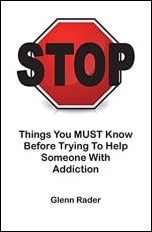 Glenn Rader is an accomplished business professional with a background in organization development and an MBA from the University of Michigan. He is in successful recovery from alcohol and drug addiction and is a public speaker, author, and a resource in the addiction recovery community. Glenn is also the author of the book STOP – Things You Must Know Before Trying to Help Someone with Addiction. The book is the product of his work with families and friends of addicts at a major addiction treatment centre.
Glenn Rader is an accomplished business professional with a background in organization development and an MBA from the University of Michigan. He is in successful recovery from alcohol and drug addiction and is a public speaker, author, and a resource in the addiction recovery community. Glenn is also the author of the book STOP – Things You Must Know Before Trying to Help Someone with Addiction. The book is the product of his work with families and friends of addicts at a major addiction treatment centre.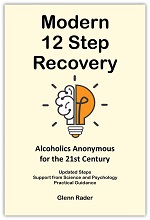

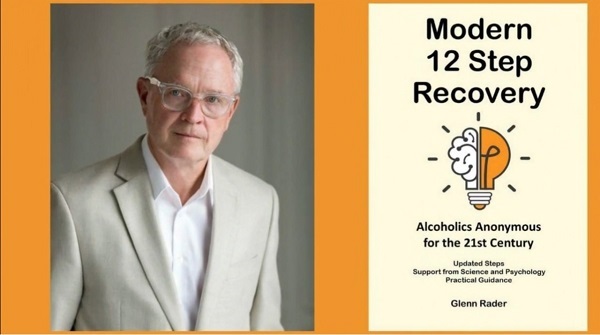
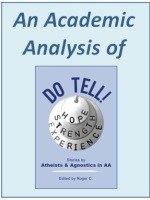

![Do Tell! [Front Cover]](https://nrdblogs.nationalrehabdirectory.net/wp-content/uploads/2020/09/Do-Tell-Full-Blue-Front-Cover-200-FRAMED.jpg) This is a chapter from the book: Do Tell! Stories by Atheists and Agnostics in AA.
This is a chapter from the book: Do Tell! Stories by Atheists and Agnostics in AA. 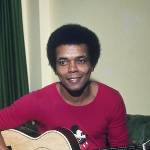

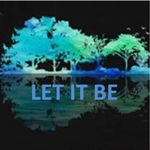
 Just for today I’ll do everything right
Just for today I’ll do everything right
